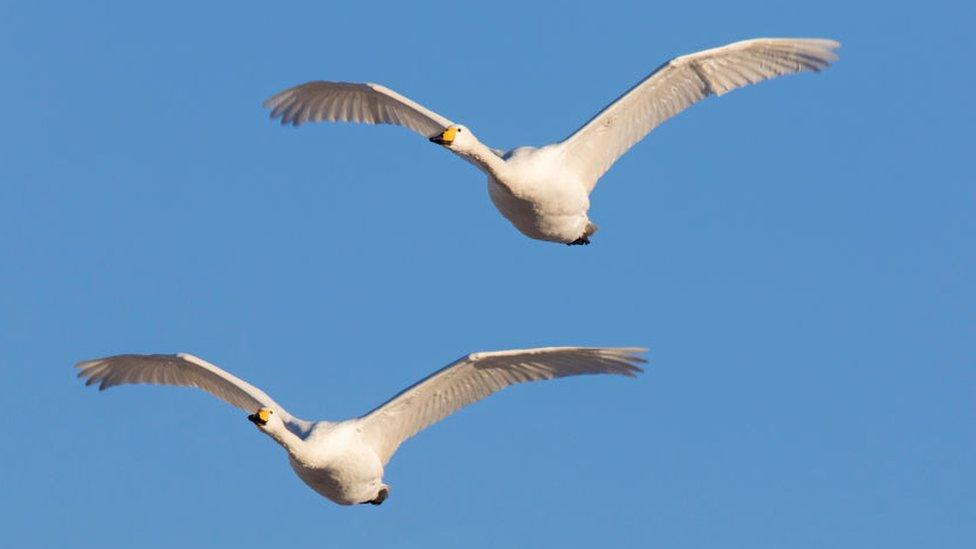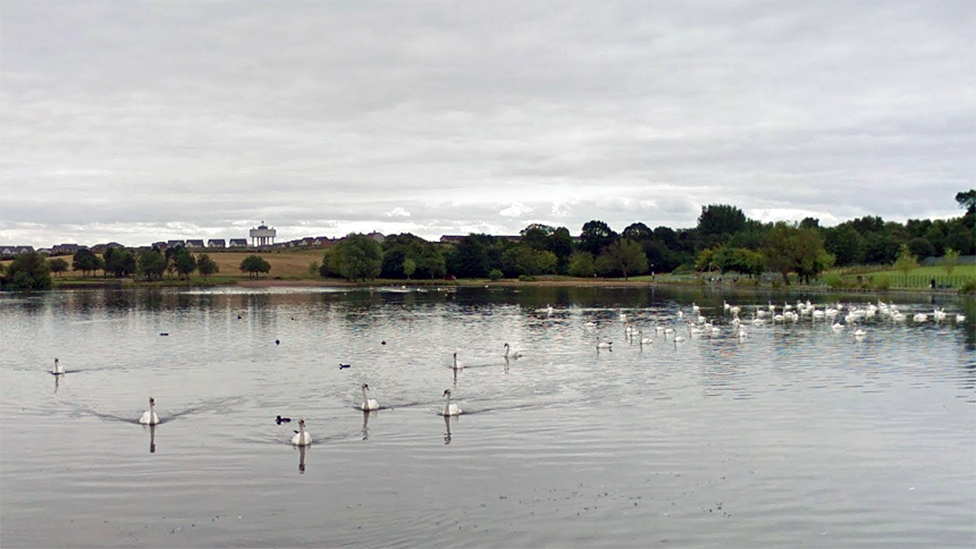Bird flu: More than 20 swans found dead in Glasgow scare
- Published

The area is popular with whooper swans
More than 20 swans have been found dead at a Glasgow park in a bird flu scare.
Twelve birds were initially found at Hogganfield Park on Tuesday, but Glasgow City Council has confirmed that a further 11 swans have died.
The council is working on the assumption that the cause of death is avian flu.
Hogganfield Loch is considered Glasgow's best site for wintering water birds such as whooper swan and goldeneye duck.
The park, home to a large population of swans, is part of the Seven Lochs Gateway.
On Wednesday, staff from the Department for Environment, Food and Rural Affairs (Defra) removed three dead swans for testing.
They are asking the public to report any sightings of dead or sick birds in public places to the environmental health team.

Hogganfield Loch is considered Glasgow's best site for wintering water birds
Glasgow City Council said it was waiting for test results from birds previously removed by Defra, but in line with its advice it was assuming the swans had died from avian flu.
It said it was important to limit the spread of the virus and that staff were working to have the dead swans removed as quickly as possible.
Members of the public are being asked to help limit the spread by sticking to paths, keeping dogs on leads and avoid feeding birds as this encourages them to congregate.
They are also being asked not to touch a dead or sick bird and avoid areas covered with droppings.
Scotland's chief vet has said strict rules to stop the spread of bird flu in England would not be replicated here.
All poultry and captive birds in England were ordered to be kept indoors from 7 November.
Sheila Voas said the evidence in Scotland did not currently justify a housing order but she said officials were "keeping the situation under review".
The latest outbreak of avian flu is the largest seen in the UK to date, and has affected the wild bird population as well as commercial and backyard flocks.
The Scottish government said the disease was also affecting wild bird populations elsewhere in the world, and it had published updated advice on the reporting, collection and safe disposal of wild bird carcases.